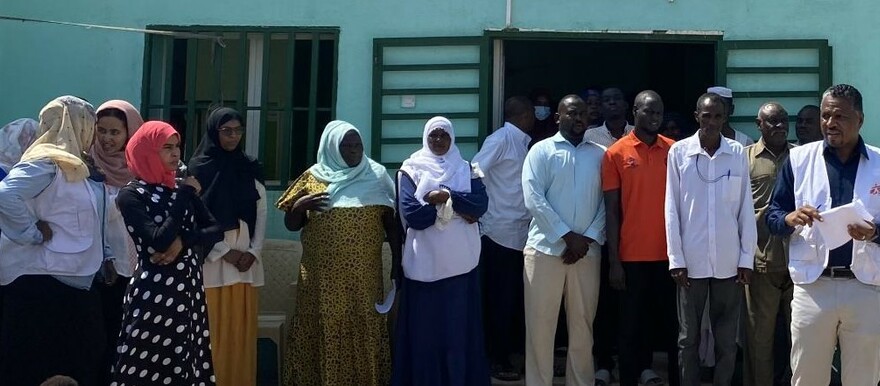The recent disruption of a telecommunications network in Jebel Awlia Locality in the Sudanese capital Khartoum has threatened to paralyze operations at emergency rooms in health facilities, local specialists have said.
Jabal Awlia is located in the north-central part of Sudan, about 40 km south of Khartoum.
In a press statement obtained by Radio Tamazuj on Monday, the specialists warned of an imminent shutdown of healthcare centres due to the disruption of a telecommunication network.
The statement confirmed that nine healthcare centres supported by the medical office of the locality have already lost communication networks.
It further indicated that the facilities provided assistance through grassroots support and provided treatment for chronic diseases and kidney dialysis centres in the Al-Salmaniya area.
“Eight centres are at risk of complete shutdown if the telecommunication and internet disruptions persist. They rely on the network to store applications used by volunteers to receive grants and financial contributions from donors and expatriates, which play a vital role in sustaining healthcare services.”
The statement also raised the alarm over a significant increase in the number of individuals affected by diseases such as malaria, waterborne diseases, tuberculosis, bilharzia, measles, dengue fever, and typhoid.
“Additionally, there has been a noticeable rise in sexually transmitted diseases and cases of fainting.”
The statement also mentioned a significant increase in child mortality rates due to the spread of childhood diseases and the cessation of child immunization for over three months.
Dr Adeeba El Sayed, a member of the Sudanese Specialists Subcommittee, confirmed to Radio Tamazuj that the health situation in Sudan has deteriorated, with 95 per cent of hospitals and health centres halting operations.
She stated that the disruption of a communications network is to blame for the worsening health conditions in centres because volunteers have been left to run the facilities following the withdrawal of over fifty international organizations.
Dr Adeeba also revealed that the emergence of epidemics is a result of environmental degradation and the spread of corpses in the streets.




